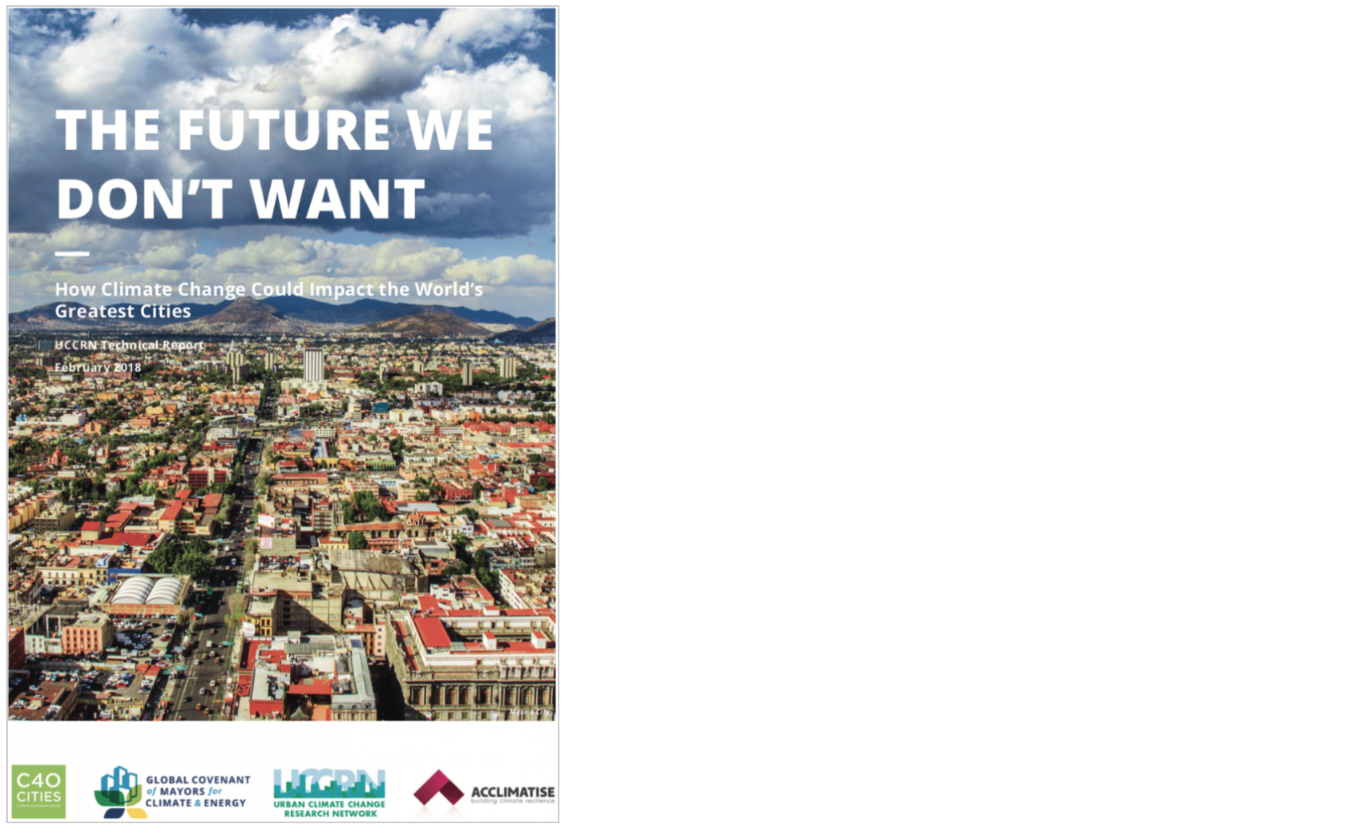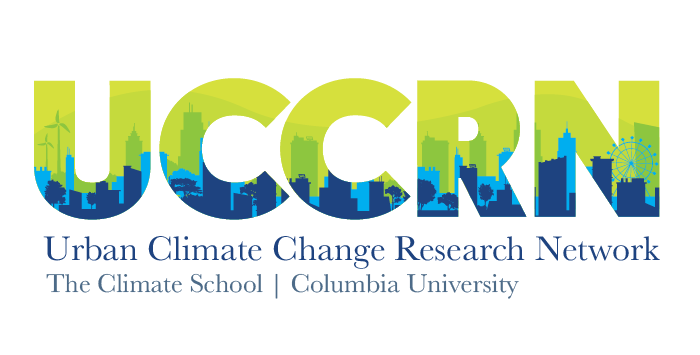The Future We Don’t Want project is a collaboration between C40 Cities, Global Covenant of Mayors, Acclimatise, and the Urban Climate Change Research Network (UCCRN) aimed at understanding and communicating key challenges cities are facing, and will continue to face, as a result of climate change.
These four organisations have come together to illustrate the unique risks that climate change poses to cities through a scientific global data analysis, as well as to share urban responses to those risks through case study examples from real-world urban experiences and narrative story lines.
This Technical Report highlights the data analysis and case studies developed by the Urban Climate Change Research Network for this project. It serves as a foundation for building narratives and key communication tools around global impacts of climate change on cities and their responses that will serve as an inspiration for other cities looking to build their own resilience plans.
Why Cities?
Every year sees the addition of 67 million new urban dwellers. A bulk of this rapid urbanisation is taking place in developing countries. By 2030, an estimated 60 percent of the world’s population will be living in urban areas. That figure will keep rising until mid-century when over 65 percent of the world’s population is projected to live in cities (IPCC, 2014). This rapid, unprecedented urban growth, poses many urban challenges, even without the added pressure of climate change. However, while the world’s urban population keeps growing, cities and the people who live in them will be increasingly vulnerable to climate extremes including more frequent, longer and more intense heat waves, exacerbated inland flooding from heavy downpours, and extended coastal flooding due to sea level rise.
Climate change is already underway and it is increasingly necessary for cities to plan and implement solutions in response to a range of climate hazards that risk impacting the health and well-being of residents as well as urban economies and infrastructural systems. 70 percent of cities are already dealing with the effects of climate change, and nearly all are at risk. For instance, over 90 percent of all urban areas are coastal, which puts most cities across the globe at risk of flooding from sea level rise and powerful storms. The financial effects of climate change can be just as devastating as the physical ones and unexpected disruptions from storms, flooding, and drought can lead to major disruptions in city government and business operations. In light of this global challenge, many urban areas have started developing resilience strategies that encompass integrated structural, behavioural, programmatic, and nature-based approaches.
City leaders are in the right position to deal with this climate challenge for two key reasons: first, cities are big users of energy, consuming 2/3 of the world’s energy while creating over 70 percent of greenhouse gases. Second, city mayors in many countries are directly accountable to their constituents for their decisions that affect global developments as well as every-day life.
Key city networks and international organisations are aiding such city action by providing resources, advocacy, and partnerships. As part of the research project, C40 Cities, Global Covenant of Mayors, Acclimatise, and the Urban Climate Change Research Network (UCCRN) have come together to illustrate the unique risks that climate change poses to cities by generating global-scale data on climate impacts and highlighting examples of urban responses to those risks through relevant case studies. This Technical Report highlights the data analysis and case study foundation developed by the Urban Climate Change Research Network for the project.
The UCCRN1 Second Assessment Report on Climate Change and Cities (ARC3.2) provides a basis for the Future We Don’t Want analysis by presenting climate projections for approximately 153 cities and cataloguing urban disasters and risks, along with the effects on human health in cities (UCCRN, 2018). ARC3.2 provides concrete solutions to cities with regard to mitigation and adaptation; urban planning and design; equity and environmental justice; economics, finance, and the private sector; as well as for urban sectors such as energy, water, transportation, housing and informal settlements, solid waste management, and climate governance. The ARC3.2 also includes a Case Study Docking Station (CSDS) that documents city examples and on-the-ground responses to resilience and climate change in 153 UCCRN cities (this approach is further elaborated in Section 4). Of the 153 UCCRN cities, 35 percent are C40 cities, and 45 percent are Global Covenant cities who have all pledged to achieve the goals of the Paris Agreement. The urban case studies from the CSDS form the basis for the examples of climate impacts and solutions that are shared throughout this Technical Report.
The Future We Don’t Want aims to highlight the critical risks that cities, and their residents will encounter as a result of climate change. It also provides tangible lessons learned from cities that are investing in actions to build resilience in the face of these risks. By analysing the urban vulnerability to climate change, The Future We Don’t Want aims to generate an awareness around what cities will be facing if we don’t take drastic action to reduce global emissions. At the same time, our research aims to facilitate urban collaboration where cities can learn from each other and take the right climate actions to meet the adaptation goals of the Paris Agreement. Through increased awareness and ambitious action, city leaders can ensure the continued resilience and sustainable development of urban areas in the age of climate change.
About the Technical Report
The Technical Report presents the work done by UCCRN for the Future We Don’t Want project. The Report contains results from the data analysis of six major global urban vulnerabilities to climate change based on several key hazards, as well as case studies that present examples of how cities are responding to these challenges.
The report presents the background of the technical data analysis and an overview of the UCCRN Case Study Docking Station on which the case study analysis is based. The report then details each of the six vulnerabilities individually. An overarching headline finding for each is presented, along with a map of the global urban outlook for that vulnerability, and the methodology used to develop that information. Then, an overview of that particular vulnerability and the overall findings of the data analysis are discussed. For each impact area, three case study cities have been selected, highlighting examples of how urban decision-makers are experiencing and responding to that particular challenge. The report concludes with a summary and overall key messages for how cities can use this information to prepare for a changing climate.

